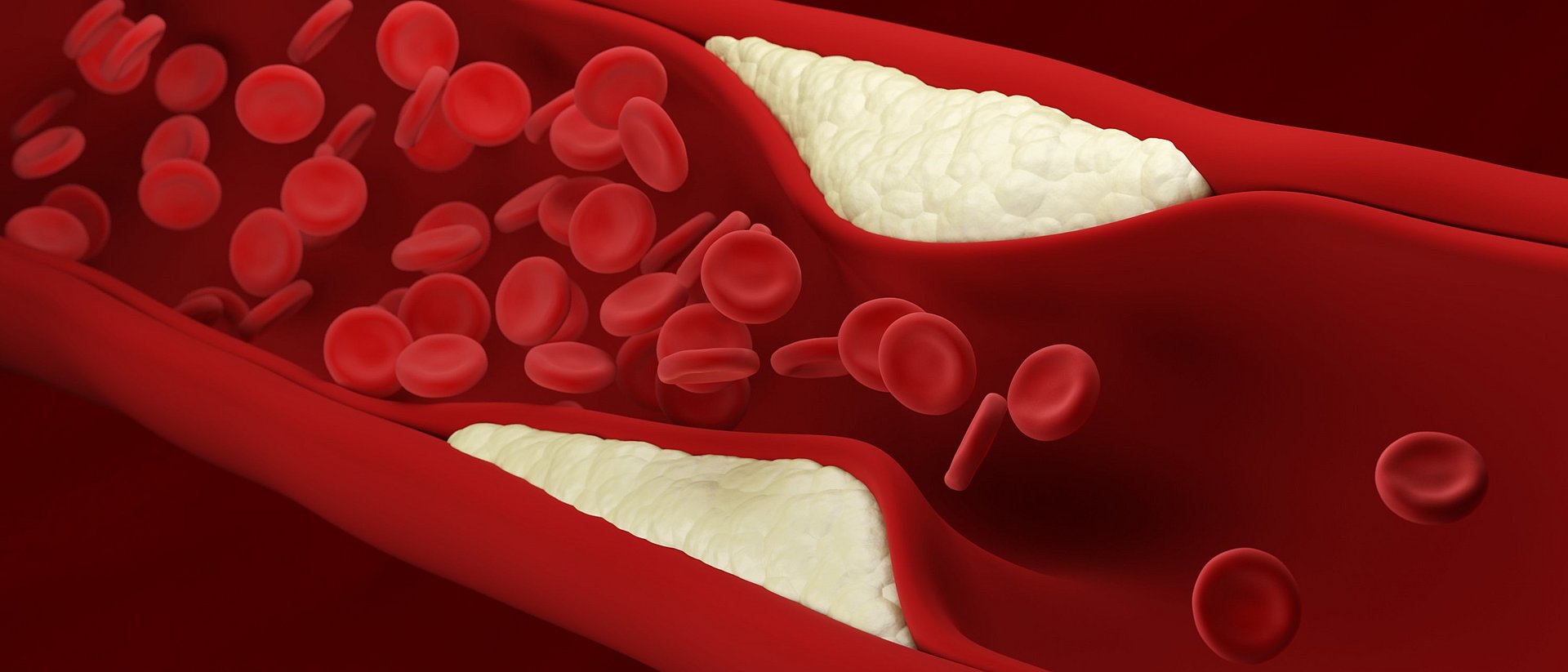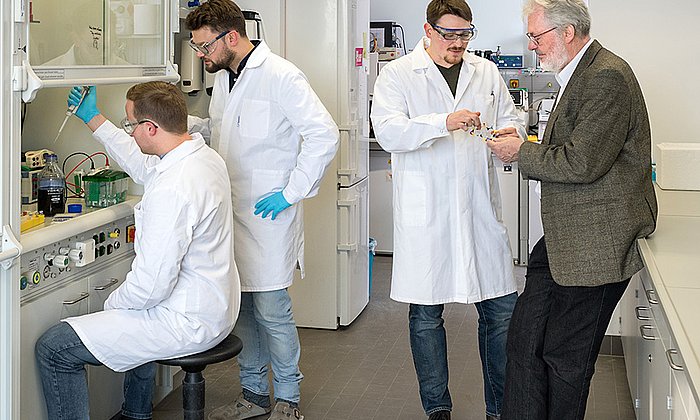New synthetic peptides could attenuate atherosclerosis
Synthetic “mini” receptors block atherosclerosis

Research over the last 20 years has shown that atherosclerosis is a chronic inflammatory condition of the arterial blood vessel wall. Soluble mediators such as cytokines and chemokines are pivotal players in this disease, promoting vascular inflammation. However, the development of anti-inflammatory therapeutics directed against such mediators that could prevent atherosclerosis has proven difficult, despite promising clinical studies in the recent past.
Previous anti-inflammatory therapeutic strategies to prevent atherosclerosis, heart attacks, strokes, rheumatoid arthritis and other inflammatory diseases have mainly been based on antibodies and small molecule drugs. The Munich-based research team has now designed and chemically synthesized short chains of amino acids – i.e. peptides – that function like a minimized soluble chemokine receptor. In animal models, these peptides can block atherosclerosis.
Researchers design a new class of peptides against atherosclerosis
Chemokines orchestrate the migration of immune cells in our bodies. They are key players in inflammatory diseases, including atherosclerosis; and this is why they are of great interest to biomedical researchers.
The peptides designed and synthesized by the Munich researchers mimic certain chemokine receptors and are able to specifically inhibit chemokine mechanisms that promote atherosclerosis, whereas chemokine mechanisms that control important physiological processes in the body are not affected – one could say they are “spared”.
Previous studies have shown the effectiveness of therapeutics related to cytokines and chemokines. However, these drugs, not only interfered with the effect of these mediators on atherosclerosis, but also suppressed their beneficial effects, for example those related to the host defense against infections.
”The mini-CXCR4 mimics we have developed are able to selectively differentiate between two different chemokines that target the same receptor – in this case between the atypical chemokine MIF and the classical chemokine CXCL12. This enables them to specifically block pathways underlying atherosclerosis,” explained Aphrodite Kapurniotu, Professor for Peptide Biochemistry at TUM.
Peptide therapeutics are suitable and inexpensive
”Peptide-based therapeutics are often considered less stable, as peptides may get rapidly degraded in the body by enzymes called proteases. However, we can apply various state-of-the-art approaches of peptide chemistry to improve the stability of peptides, for example by introducing unnatural amino acids into the peptide sequence,” Prof. Kapurniotu added.
”So far, our approach was validated only in an animal model of atherosclerosis, but future clinical applications seem possible, in particular also due to the fact that peptide-based therapeutics are substantially less expensive than antibodies,“ said Prof. Jürgen Bernhagen from the Institute for Stroke and Dementia Research (ISD) at the LMU University Hospital.
Therapeutic potential for inflammation diseases
The Munich researchers view these results as a „proof-of-principle“ of their approach. In fact, their findings show that concepts based on mini-chemokine-receptor mimics are feasible and suggest that this kind of concept could potentially be applied to other chemokines as well.
Thus, the new molecular concept could bear therapeutic potential for atherosclerosis and other inflammatory diseases.
Christos Kontos, Omar El Bounkari, Christine Krammer, Dzmitry Sinitski, Kathleen Hille, Chunfang Zan, Guangyao Yan, Sijia Wang, Ying Gao, Markus Brandhofer, Remco T.A. Megens, Adrian Hoffmann, Jessica Pauli, Yaw Asare, Simona Gerra, Priscila Bourilhon, Lin Leng, Hans-Henning Eckstein, Wolfgang E. Kempf, Jaroslav Pelisek, Ozgun Gokce, Lars Maegdefessel, Richard Bucala, Martin Dichgans, Christian Weber, Aphrodite Kapurniotu & Jürgen Bernhagen: Designed CXCR4 mimic acts as a soluble chemokine receptor that blocks atherogenic inflammation by agonist-specific targeting. Nature Communications, 11, 5981 (2020)
This is a cooperative study by Prof. Aphrodite Kapurniotu’s research group (TUM) and scientists at the Institute for Stroke and Dementia Research (ISD) of the LMU Hospital (Prof. Jürgen Bernhagen) as well as the cooperating laboratories of Prof. Christian Weber (Director of the Institute for Prophylaxis and Epidemiology of Circulatory Diseases at LMU and Spokesman of the DFG Collaborative Research Center 1123 – “Atherosclerosis”), Prof. Lars Mägdefessel and Prof. Hans-Henning Eckstein (Clinic for Vascular Surgery at TUM), Prof. Martin Dichgans (ISD, LMU Hospital), and Prof. Richard Bucala (Yale University).
TUM and LMU filed a patent for the underlying molecular concept (i.e. the novel synthetic peptides), which is marketed by BayPat.
This research received support from the German Research Foundation (DFG) within the framework of the Collaborative Research Center SFB1113 “Atherosclerosis”, the DFG-funded SyNergy Cluster of Excellence, and the National Institute of Health (NIH).
Technical University of Munich
Corporate Communications Center
- Dr. Katharina Baumeister-Krojer
- katharina.baumeister@tum.de
- presse@tum.de
- Teamwebsite
Contacts to this article:
Prof. Dr. Aphrodite Kapurniotu
Technical University of Munich
TUM School of Life Sciences
Division of Peptide Biochemistry
Campus Weihenstephan
Tel.: +49 (8161) 713542
akapurniotu@wzw.tum.de
Prof. Dr. Jürgen Bernhagen
Hospital of the Ludwig-Maximilians-University (LMU) Munich
Institute for Stroke and Dementia Research (ISD)
Chair of Vascular Biology
Campus Großhadern
Tel.: +49 (89) 4400-46151
juergen.bernhagen@med.uni-muenchen.de
